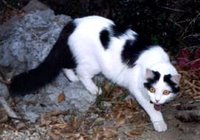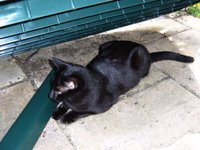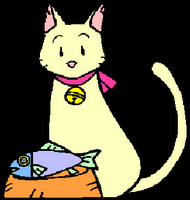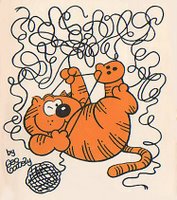Should I put my cat out at night?
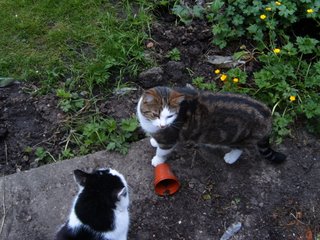
Here in the UK we are having a spell of very hot summer weather and all my cats are enjoying spending the time out of doors. The problem comes at bed-time! They know that I try to get them into the house then, so although at any other time they come running towards me, in the late evening they do the opposite! They deliberately elude me because they want to stay outside.
Cats love being outside on balmy summer evenings. The temperature is just right for them, without the hot sun which many of them find too hot. Not only that, but all the little creatures come out and they can have great fun chasing them - moths, voles, fieldmice and even frogs. Last night one of mine was having huge fun chasing a frog which was hopping about just out of her reach. There was no way she wanted to come indoors.
I often hear people say "Oh we put our cat out at night". These are usually people who otherwise give exemplary care to their cat, but on this I totally disagree with them. The night time is the most dangerous time, when cats run the most risk of being killed or injured on the roads. In a rural area they could be attacked by foxes or other wild animals. It is also the time when they are likely to wander off and get lost, if they are shut out for several hours with nobody to let them in or feed them.
Keep your cat in at night. He will protest and beg to be let out, but indoors is the safest place for him!
